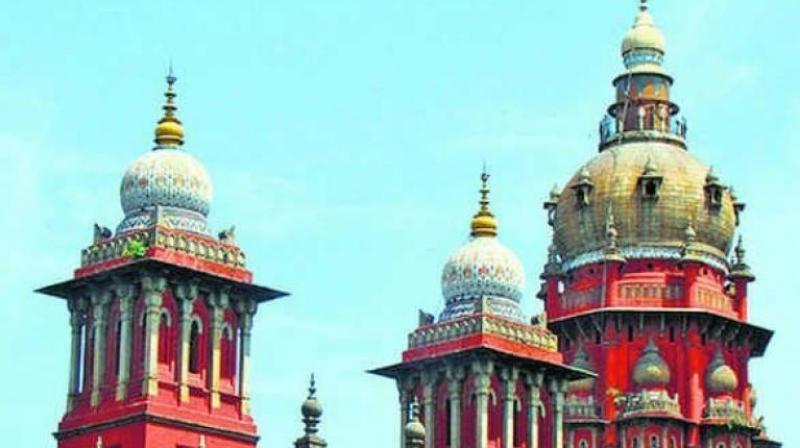Madras HC sends notices to Centre, state on EWS reservation
The oppressed and downtrodden, who all along have suffered and been denied employment, were provided with reservation.

Chennai: The Madras High Court has served notice on the Centre and the state government on a petition filed by the DMK, which sought to declare as unconstitutional the Constitution (One Hundred and Third Amendment) Act, which provides for 10 per cent reservation for economically weaker sections in the general category.
A division bench comprising Justices S. Manikumar and Subramonium Prasad posted to February 18, further hearing of the petition filed by R.S. Bharathi, organising secretary of DMK.
When the petition came up for hearing on Monday, senior counsel P. Wilson appearing for the petitioner submitted that reservations were to set right historic oppression of certain communities based on their caste. Any reservation for EWS violates the Right to Equality enshrined under Article 14 and 16 of the Constitution of India. It violates the basic structure of the Constitution, he added.
Wilson said, “Within the family, there is disparity. For example, in a family, where a mother, who has two sons, comes under EWS, her one son is doing business and another son is in service. The businessman’s son will be rich and he will not come under weaker section and hence, he will not get admission in educational institutions and thereafter job, whereas the son of another son who is in service will come under weaker section and he will avail all the benefits under reservation. Hence, there is disparity within the family.” Therefore, economic status cannot be the criteria for reservation, he added.
He said economic status fluctuates. So, that cannot be the basis for reservation. The oppressed and downtrodden, who all along have suffered and been denied employment, were provided with reservation. But the present reservation was for the upper class. They have fixed Rs 8 lakh per annum income as a ceiling. The fixation of the amount was not part of the Constitutional amendment. It was a part of the Cabinet decision taken on January 7. Doctrine of arbitrariness applies to Constitutional amendments as well, Wilson added.
Opposing the same, Additional Solicitor General G. Rajagopal submitted that “the petitioner is a Rajya Sabha member”. Whether he voted against the Constitutional amendment or not, he cannot maintain a writ petition. If he has voted in favour of the Bill, he cannot come to the court. What he could not achieve before the Rajya Sabha, he was trying to achieve before this court. It was political interest litigation. It was only a political game and not a PIL. Having lost before a constitutional forum, he cannot misuse another constitutional forum, the ASG added.
“The petitioner is a Rajya Sabha member but as a citizen, he has every right to question it and it is his fundamental right,” Wilson concluded.

